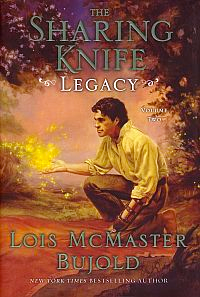So, what happened to me in the hospital?
My surgeon has admitting privileges at the Augusta Medical Center, so that is where he sent me. He called ahead to warn them I was en route, but the first thing they had to do was assess me.
After all, no medical person had seen me for many hours. I could be in any condition, for all they knew, when I walked in through the ER doors.
Blood pressure, heart rate, and blood oxygen are simple enough to obtain. But answers to questions? Oh, my!
With my tongue the size of the Goodyear blimp, my answers were utterly unintelligible.
Luckily my husband could tell the whole sad story perfectly well: the surgery and its complications, the extreme swelling in the aftermath.
And, interestingly, my husband could often understand my blurred utterances, when the question pertained to something current, rather than something in the past. He could translate for me.
The intake was fast, and I waited only 5 minutes before they took me back.
Soon I was hooked up to an IV, receiving fluids, antibiotics, and a steroid (to get the swelling down). Then came the first stumble. They wanted to give me something for pain, and I was all for it, since my pain levels were high.
But they wanted to give me Toradol, which is an NSAID.
I’ve been avoiding NSAIDs for the last 25 years. The last time I ever took one—ibuprofen—the pill landing in in my stomach felt like someone had lit a match there. It HURT!
This is where being scared, weak, in pain, and not able to talk is a huge disadvantage in a hospital. I let them give it to me. They argued that everyone experiences some stomach upset with NSAIDs and that since the drug would not be going through the stomach, it would have a minimal effect there.
I didn’t feel strong enough and confident enough to just say no.
Well, it didn’t feel like a lit match, thank goodness. But within 45 minutes, my stomach hurt. It really hurt. And I strongly regretted that unsaid no. Next time—assuming there is one—I’ll say no.
In the meantime, there I was, tongue still swollen, pain less in my mouth, but still present, and enough pain in my stomach to offset any relief from lowered mouth pain. My one comfort was that if the swelling were to increase enough to cut off my airways, I was in the right place. Presumably they would be able to save me.
We’d arrived at the ER around 4 in the afternoon. Sometime around 7 pm I received a hospital room. And then it was time for my husband to go home. Our kids are 16, old enough to be fine on their own for considerable lengths of time. But still, it was time for a parent to return to the nest and do all the parent things.
All of the rooms at Augusta Health are single, and they are very nice. Mine had a gorgeous view of the Blue Ridge Mountains.
So I hung out in the bed, gazing out at the golden evening and just resting. I felt very tired.
My surgeon arrived and assessed me. He arranged for a suction device, so that I could remove the spit from my mouth without having to try to swallow it. That was huge relief. And as the hours ticked away, my tongue began to subside.
I still remember trying a sip of iced water at around midnight. Just the one. And I was able to swallow it! I cannot tell you how good that felt.
By morning my tongue was perhaps half its previous size and swallowing water was very feasible. Oh, how I loved that water!
Jello—served for breakfast—was still beyond me. And I knew the “chicken broth” was probably a chemical sea of MSG and soy, which would just upset my poor stomach still more. Because—yes—my stomach was still suffering. It felt like someone had taken sandpaper to it.
By early afternoon, I could talk intelligibly! Yay!
Prep began for me to return home.
And then came the next major stumble. I was given liquid oxycontin. Uh, oh!
Guess what? Liquid oxycontin has alcohol in its formulation. And that alcohol burned the surgical wound in my mouth. I’m not really much of a crier these days. This is not a virtue. There are many times when the catharsis of a good cry would ready me to proceed ahead with full energy, but—dash it!—I can’t manage to cry.
Well, let me tell you! My burned surgical wound hurt so badly—and grew worse after the initial burn—that I simply had to cry. Pain level 9 out 10.
Within half an hour, my tongue was the size of the Goodyear blimp once again.
But still they were going to send me home.
This seemed like a bad idea to me. I couldn’t swallow my own spit anymore. I couldn’t swallow any water. I couldn’t swallow any medications. This was why I’d been admitted to the hospital in the first place. But they were going to send me home anyway?
Their reasoning was twofold.
1) All the steroids in me would keep working and my tongue would start to go down in size soon.
2) I’d been admitted to the hospital for observation. If I stayed for more than 24 hours, the basis for my admission would have to be changed and the whole thing would became much more expensive, and the insurance coverage assessed on a different basis.
Well, I can’t pretend that the second reason didn’t weigh with me.
My husband’s position was eliminated in July, and he is currently unemployed. We have medical insurance through the end of the year. We have the money to buy food, pay our mortgage, and pay this hospital bill. But…our financial situation is not good, not good at all.
I didn’t think my surgeon was right about how quickly my tongue would de-swell. In fact, I was scared about that. But I figured that at least I was no longer dehydrated. I’d been getting IV fluids all this time. I could surely last until the next day. And maybe, by then, I would be able to swallow again.
So I went home.
On the way home, I did some thinking. What could I do to ensure that I didn’t just land in the hospital again tomorrow?
 I found myself remembering The Sharing Knife: Legacy by Lois McMaster Bujold.
I found myself remembering The Sharing Knife: Legacy by Lois McMaster Bujold.
A major facet of the story treats with the fate of ten unconscious people, who Dag and Fawn (and company) are determined to save. Dag puts the grandmothers in the group on the case. He figures that people who have the most experience keeping completely helpless people alive will have the best chance with these unconscious patients.
Somehow that scene gave me hope. If those fictional grandmothers could succeed, maybe I could, too.
It wasn’t until 10 at night that my own solution came to me.
I was remembering when my children were babies, and how we used plastic syringes to get medicine into them when they were ill.
I’d been given exactly that kind of plastic syringe to get my own medicines into me. I had liquid steroids and liquid antibiotics. And I’d been told to crush the oxycodone pills, mix them with water, and syringe those into me as well.
The first dose worked! The trick was to push the plunger down very s-l-o-w-l-y. I couldn’t swallow even a sip. But I could swallow one drop at a time.
And that is when I realized that I could get water into me via syringe. Drop by drop.
I even tried a syringe full of consommé. And I knew I would be okay. Medicine? Check. Fluids? Check. I really would be okay.
But…my stomach hurt soooo much! All those medicines on an empty stomach were doing a number on me.
I carried on. Medicine. Water. Consommé. Medicine. Water. Consommé.
By 3 the next afternoon (24 hours after my discharge), my tongue was once again down in size, enough so that I could swallow. And talk, with a strange sort of lisp. I’d turned the corner.
That was the weekend of August 10-11. My surgeon winced when he saw me that Monday, because the swelling was still so bad.
But how am I now?
A lot better.
I’ve been guzzling down beet kvass, homemade chicken broth, kombucha, and eating over-easy fried eggs. My stomach is not yet fully recovered from the harsh medicines, but it just hurts a little, not a lot.
This Monday—August 19—my surgeon was really happy with the state of my mouth. He said it was looking good! (I think it was the beet kvass. Really!)
I am still in a fair amount of pain. Part of that is that my primary pain medicine is now acetaminophen. You can’t just continue with the opioids indefinitely. The other part is that my surgery was pretty extensive. There was a lot of bone removed, ground down, and smoothed. It is just going to take time for my body to get it all healed.
I’m grateful that I’m alive. I’m grateful that I didn’t have to suffer intubation. I’m grateful I can swallow! I’m grateful that I am healing. And I am so, so eager to be well!
Send me healing vibes, if you feel so inclined!
For more about my surgery, see:
Surgical Complications Slow Me




